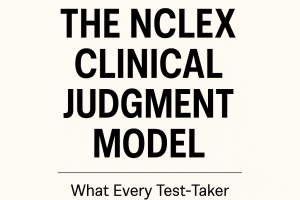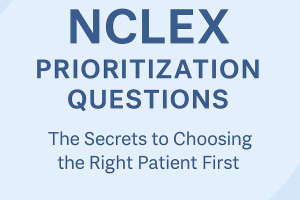Understanding Antipsychotic Medications: Uses, Side Effects, and Considerations

Antipsychotic medications, also known as neuroleptics, are a class of drugs primarily used to manage symptoms of psychosis, such as hallucinations, delusions, and disordered thinking. These medications are commonly prescribed for conditions such as schizophrenia, bipolar disorder, and severe depression with psychotic features. In this comprehensive guide, we’ll explore the uses, side effects, and considerations associated with antipsychotic medications.
Types of Antipsychotic Medications
1. First-Generation Antipsychotics (Typical Antipsychotics)
Examples: Chlorpromazine, Haloperidol, Fluphenazine
Mechanism of action: Block dopamine receptors in the brain
Uses: Management of positive symptoms of psychosis (e.g., hallucinations, delusions)
Side effects: Extrapyramidal symptoms (EPS), tardive dyskinesia, sedation, anticholinergic effects
2. Second-Generation Antipsychotics (Atypical Antipsychotics)
Examples: Risperidone, Olanzapine, Quetiapine, Aripiprazole, Ziprasidone, Clozapine
Mechanism of action: Block dopamine and serotonin receptors in the brain
Uses: Management of positive and negative symptoms of psychosis, mood stabilization
Side effects: Metabolic effects (weight gain, diabetes, dyslipidemia), sedation, orthostatic hypotension, agranulocytosis (with clozapine)
Uses of Antipsychotic Medications
1. Schizophrenia
Antipsychotic medications are the primary treatment for schizophrenia, a chronic mental health disorder characterized by psychotic symptoms such as hallucinations, delusions, disordered thinking, and cognitive impairment. These medications help reduce the severity and frequency of psychotic episodes and improve overall functioning and quality of life.
2. Bipolar Disorder
Antipsychotic medications are often used in combination with mood stabilizers to manage symptoms of bipolar disorder, a mood disorder characterized by alternating episodes of mania and depression. These medications can help stabilize mood, reduce the frequency and severity of mood episodes, and prevent relapse.
3. Major Depressive Disorder with Psychotic Features
In cases of severe depression with psychotic features, antipsychotic medications may be prescribed to manage psychotic symptoms such as hallucinations and delusions. These medications are often used in combination with antidepressants to improve overall symptom relief.
4. Other Conditions
Antipsychotic medications may also be used off-label to manage symptoms of other psychiatric disorders, such as anxiety disorders, post-traumatic stress disorder (PTSD), and obsessive-compulsive disorder (OCD). However, their use in these conditions is less common and may be associated with an increased risk of side effects.
Side Effects of Antipsychotic Medications
1. Extrapyramidal Symptoms (EPS)
Examples: Parkinsonism, dystonia, akathisia
Mechanism: Blockade of dopamine receptors in the basal ganglia
Symptoms: Muscle stiffness, tremors, restlessness, involuntary movements
Management: Dose reduction, switching to a different antipsychotic, adding a medication to counteract EPS (e.g., anticholinergics, beta-blockers)
2. Metabolic Effects
Examples: Weight gain, diabetes, dyslipidemia
Mechanism: Disruption of metabolic processes, including glucose and lipid metabolism
Risk factors: Second-generation antipsychotics (especially olanzapine and clozapine), family history of metabolic disorders, unhealthy lifestyle habits
Management: Regular monitoring of weight, blood glucose, and lipid levels; lifestyle modifications (diet, exercise); switching to a different antipsychotic with a lower risk of metabolic side effects
3. Cardiovascular Effects
Examples: Orthostatic hypotension, QT interval prolongation
Mechanism: Blockade of alpha-adrenergic receptors (orthostatic hypotension), blockade of cardiac potassium channels (QT interval prolongation)
Symptoms: Dizziness, lightheadedness, fainting (orthostatic hypotension), arrhythmias, sudden cardiac death (QT interval prolongation)
Management: Slow titration of dose, monitoring of blood pressure and ECG, avoidance of other medications that prolong the QT interval
4. Agranulocytosis
Example: Clozapine-induced agranulocytosis
Mechanism: Suppression of bone marrow production of white blood cells (granulocytes)
Symptoms: Fever, sore throat, malaise
Risk factors: Clozapine treatment, history of previous episodes of agranulocytosis
Management: Regular monitoring of white blood cell count, immediate discontinuation of clozapine if agranulocytosis is suspected
Considerations for Antipsychotic Medication Use
1. Individualized Treatment
Selection of antipsychotic medication should be based on individual patient factors, including symptom severity, treatment history, comorbid medical conditions, and risk of side effects.
2. Regular Monitoring
Patients taking antipsychotic medications should receive regular monitoring of symptoms, side effects, and metabolic parameters (e.g., weight, blood glucose, lipid levels).
3. Adherence to Treatment
Adherence to antipsychotic medication treatment is essential for symptom control and prevention of relapse. Healthcare providers should work closely with patients to address barriers to adherence and provide ongoing support.
4. Shared Decision-Making
Treatment decisions regarding antipsychotic medications should be made collaboratively between patients and healthcare providers, taking into account patient preferences, values, and treatment goals.
Conclusion
Antipsychotic medications are a cornerstone of treatment for a variety of psychiatric disorders, including schizophrenia, bipolar disorder, and severe depression with psychotic features. While these medications can be highly effective in managing symptoms, they are also associated with a range of side effects that require careful monitoring and management. By understanding the uses, side effects, and considerations associated with antipsychotic medications, healthcare providers can optimize treatment outcomes and improve the overall quality of care for patients with psychiatric disorders.






